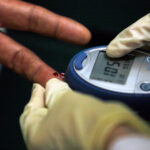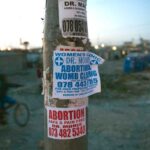Medecins Sans Frontieres says that amid collapsing health systems, people in the countries worst affected are too afraid to report all Ebola cases.
Field workers from the international aid organisation, Medecins Sans Frontieres (MSF), who returned to South Africa last week after having worked in Ebola-stricken countries in West Africa, say far more people have died of the disease than the World Health Organisation’s (WHO) estimated 4 000.
Speaking at a press conference in Johannesburg on Tuesday, Juli Switala, a South African paediatrician who had been stationed in Sierra Leone since May, said she believed people in the countries worst affected are not reporting all Ebola cases.
“People are very fearful. This would not be the first Ebola outbreak where people hide dead bodies and sick family members, the predominant reason for that is the fear.”
“Parents are terrified to take their sick children to hospital; they’re scared that the children catch Ebola [while in hospital]. The health system is collapsing, nurses are scared to go to work and hospitals are being abandoned by staff and patients,” said Switala.
She said the Sierra Leone government has set up road blocks where people are crossing “major roads get their temperatures checked”. “People are really scared of what will happen to them if they are found to have a temperature.”
According to the organisation, the fear and stigma associated with the virus means that the 40% of patients treated by MSF who survive are often not welcomed back into their villages.
WHO director general Margaret Chan alluded to the fear and stigma surrounding the Ebola virus in a statement on Monday when she said that “rumour and panic spread faster than the virus”.
Promises – but no ‘action on the ground’
The Ebola virus is transmitted from one person to the next through close and direct physical contact with infected bodily fluids, the most infectious being blood, faeces and vomit, the WHO says on its website.
“Common sense and observation tell us that spread of the virus via coughing or sneezing is rare, if it happens at all … studies from previous Ebola outbreaks show that all cases were infected by direct close contact with symptomatic patients,” the website reads.
On Friday, Health Minister Aaron Motsoaledi announced the Ebola Response Fund, which is meant to “support health and humanitarian efforts in West Africa”. The United Nations has also set up a Global Ebola Response.
But MSF says that not enough is being done to curtail the spread and impact of the virus. “We [MSF] are constantly finding ourselves not one but two steps behind in our efforts to try and stop the transmission of Ebola. We’ve heard many big promises from various states and international bodies but a lot of it remains promises which are not translated to action on the ground,” said MSF fieldworker Jens Pedersen.

Ina Skosana was a health reporter at Bhekisisa.





